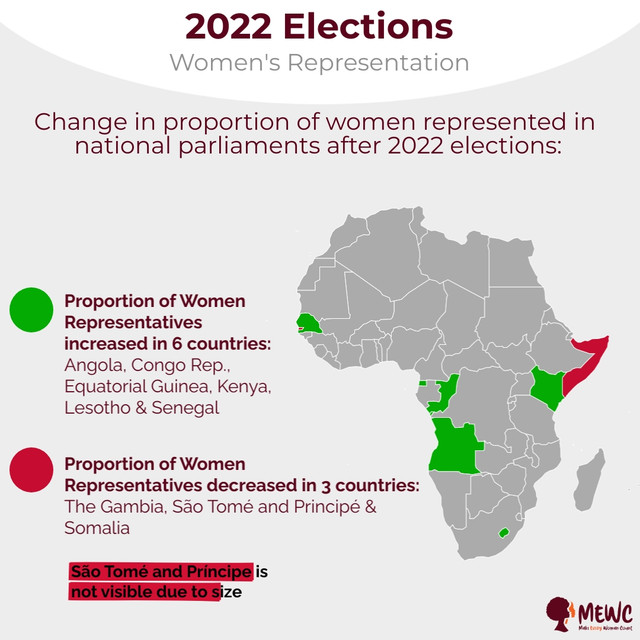Gender Issues Showlist
Women, Peace & Security
UNSCR 1325 calls on all parties to: protect and respect the rights of women and girls in conflict & post-conflict; increase women participation in all conflict resolution, peacekeeping and peace-building & to end impunity by prosecuting perpetrators of sexual and other violence on women and girls
index.php?option=com_content&view=category&id=56&Itemid=1913
Human Rights of Women
Thirty six years after the adoption of CEDAW, many women and girls still do not have equal opportunities to realize rights recognized by law. Women are denied the right to own property or inherit land. They face social exclusion, “honor killings”, FGM, trafficking, restricted mobility, early marriage,...
index.php?option=com_content&view=category&id=44&Itemid=1908
Violence Against Women
Violence against women is the most shameful human rights violation. Gender based violence not only violates human rights, but also hampers productivity, reduces human capital and undermines economic growth. It is estimated that up to 70 per cent of women experience violence in their lifetime
index.php?option=com_content&view=category&id=69&Itemid=1912
Political Participation & Leadership
Where women are fully represented, societies are more peaceful and stable. Women political participation is fundamental for gender equality and their representation in positions of leadership must be a priority for all Africans governments.
index.php?option=com_content&view=category&id=65&Itemid=1911
Latest News
- Chad: Parliamentary Elections 2024
- Namibia: General Elections 2024
- Mozambique: Parliamentary and Presidential Elections 2024
- Tunisia: Presidential Elections 2024
- MEWC is looking for Research & Communications Interns
- COTE D'IVOIRE: South-South Meeting to Promote Gender Equality and Combat Deforestation
- RWANDA: Rwanda Set to Launch Cervical Cancer Elimination Plan
- NIGERIA: Over 5,000 Nigerian Women Stranded in Iraq - Govt
- SUDAN: Healthcare Collapse Threatens Pregnant Women in Sudan's Sharg El Nil
- GHANA: President Nominates 12 More Ministers
ZIMBABWE: Women Farmers Reap Conservation Benefits
Source: The Zimbabwean
On a recent field visit to Hwange, CEO of Environment Africa, Charlene Hewat visited one of the conservation farming projects.
Under the watchful eye of Environment Africa's field officer, Shackson Ncube, 210 participating small-scale farmers each received $160 in vouchers which they could redeem for agricultural inputs of their choice - implements, seed or fertilizer.
Hwange is one of the hottest and driest regions, with very low rainfalls. Growing and harvesting crops in this environment is a climatic challenge on its own. Training in conservation agriculture is critical and the positive results are evident when you see a moisture stressed crop in a traditionally ploughed field wilting next to a field that has been planted using conservation methods, yielding a strong, healthy crop.
Conservation farming focuses on non-tillage planting, inter cropping and weeding, water harvesting. One of the main criteria to growing successful crops is the timing.
Fields have to be meticulously prepared. Individual planting holes or basins need to be dug with hoes about 60cm apart ready for planting when the first rain falls.
Three seeds are planted in each hole and covered with mulch of hay or dry leaves. Intercropping with nitrogen-fixing legumes, such as cow peas, protects the soil and will retain moisture for the growing plants.
This method of individual planting holes combined with mulching and intercropping not only protects soil structure, it also increases soil fertility for the next season's crop. Weeding and trimming are also vital for a successful yield.
Juliet Nyoni and Mavis Ncube have successfully grown and are harvesting their small grains and maize crop. One of the goals of Environment Africa is to identify champions in a community and train and empower them. They in turn pass on their skills to others.
Nyoni's 70 x 60 m field took five days to prepare for planting and on the evening of 22nd November 2011 when the first rains came, she and her two daughters planted maize and pearl millet. Despite a desperate lack of rain this season, with dedication and care, Nyoni, an Environment Africa Champion, is now harvesting her crops and will be able to feed her family for the next year.
Mavis Ncube, a first-time farmer being guided by Nyoni, is proud of her pearl millet crop. Although it is more labour intensive to grow than maize, she prefers the aroma and taste of ground pearl millet, which is also more resistant to drought, disease and pests. These two women are outstanding examples of the positive benefits of conservation farming. -www.environmentafrica.org





